Whether you’re using plastic or silicon measuring cups, we show you how to clean resin cups so you can use them again and again!
Cleaning resin cups may seem like a daunting task, but with a few simple steps, it can be a breeze! Whether you’re a seasoned resin artist or just starting out on your first resin project, it’s important to keep your cups and mixing containers clean to ensure the best results for your resin craft projects.

How To Clean Resin Cups
The best way to clean resin cups is to start by removing any excess resin that may be at the bottom of the cup. This can be done by gently scraping it off with a plastic or silicone stir stick, or by using a paper towel or baby wipe. If there is a lot of resin, you may want to use a little rubbing alcohol to help break it down.
Once you’ve removed as much of the excess resin as possible, it’s time to move on to the next step: cleaning the remaining resin from the cups. The easiest way to do this is by using hot soapy water and a little bit of dish soap. Simply fill your cups with hot water and a drop or two of dish soap, and then use a silicone stir stick to scrub away any remaining resin. Tape can also be used to grab tiny pieces of dried-on resin!
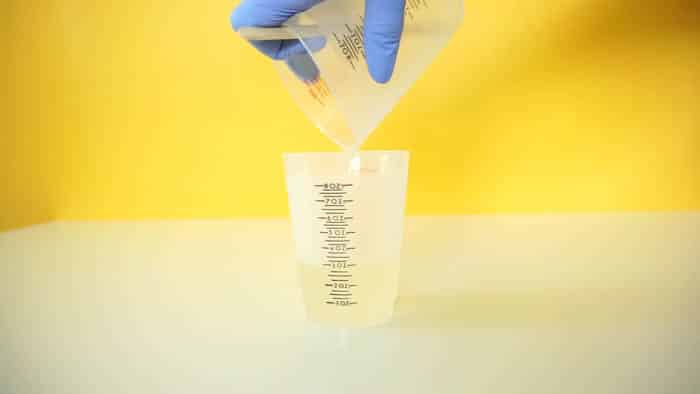
If you’re working with a lot of resin, or if you’re using plastic cups, you may want to consider using a citrus-based cleaner. These types of cleaners have anti-fungal properties and can help to prevent fungal infections from developing in your cups.
Another great option is to use a scrub. Mix a small amount of baking soda with a bit of water to create a paste. Gently scrub the cups with the paste and then rinse with warm soapy water. This works especially well for small areas or small batches of resin.
If you’re working with silicone resin molds, I usually let the resin dry and peel it out once cured. You may find sticky spots that hot soapy water isn’t quite enough to clean properly. In this case, using a little bit of isopropyl alcohol can help to remove any remaining resin. Simply soak a paper towel or baby wipe in alcohol, and then gently rub away any remaining resin.
Once you’ve cleaned your cups and mixing containers, it’s important to let them dry completely before using them again. This is especially true if you’re working with epoxy resin, as any moisture left in the cups can cause the resin to cure prematurely.

The good news is that once your cups are clean, you’ll be able to use them again and again for your next resin project. This is not only a great way to save money on disposable cups, but it’s also an easy way to reduce waste. Yay, save the planet!
In summary, cleaning resin cups is a simple process that can be done with a few basic supplies. Whether you’re using plastic cups or silicone molds, the key is to remove as much of the excess resin as possible before cleaning. Using hot soapy water and a little bit of dish soap or citrus-based cleaners is the best option for cleaning your cups. Always be sure to let your cups dry completely before using them again. With these easy steps, you’ll be able to enjoy beautiful pieces without worrying about the additional cost or time it takes to clean resin cups.
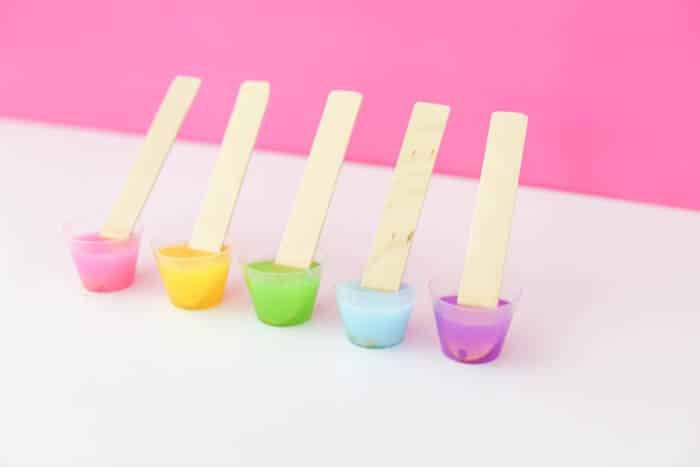
Tips for cleaning resin cups:
There are a few other things to keep in mind when cleaning resin cups, so here are a few additional tips to help make the process even easier:
- Always use protective gloves when cleaning resin cups. You should wear gloves anytime you’re doing any work with resin. Resin can be harsh on the skin, and can cause mild irritation or allergic reactions in some people. Wearing gloves will help to protect your hands from the resin and any cleaning products you may be using.
- Consider occasionally using disposable cups for your resin projects. While using reusable cups is a great way to reduce waste, it’s also important to keep in mind that some types of resin can be difficult to remove from plastic or silicone cups. If you’re working with a lot of resin or using a particularly stubborn type of resin, using disposable cups may be the best option for you.
- Don’t forget to clean your stir sticks and molds as well as your measuring cups. Just like your cups, these items can also become coated in resin if they’re not cleaned properly. Be sure to use the same cleaning methods and products as you would for your cups, and let them dry completely before using them again.
- If you’re working with small batches of resin or only have a small amount of resin left over in your cups, you can try using yogurt containers or baby food containers as mixing cups. Raid your recycle bin before starting your project. These containers are the perfect size for small batches of resin and can be easily cleaned and reused or simply tossed. When working with non-measuring type containers, you’ll need to use a scale to ensure you have the right ratio of resin to hardener!
- Be mindful of your work area when cleaning resin cups. Resin can be tough to clean on surfaces, so be sure to use a silicone mat or wax paper to protect your work surface. Additionally, be sure to keep any liquids or cleaning products away from sensitive data or equipment (camera, laptop, etc.)
- If you’re working with epoxy resin, it’s important to note that it can take up to 24 hours for the resin to fully cure. So, even though your cups may look clean the next day, it’s best to wait until the resin is fully cured before trying to clean the cups.
- One common question is how to clean sticky resin from your cups or molds. It’s important to note that once the resin has cured, it will become a thermoplastic polymer and no longer be in a liquid form. However, you can usually use a lacquer thinner or citrus-based liquids to remove the sticky residue.
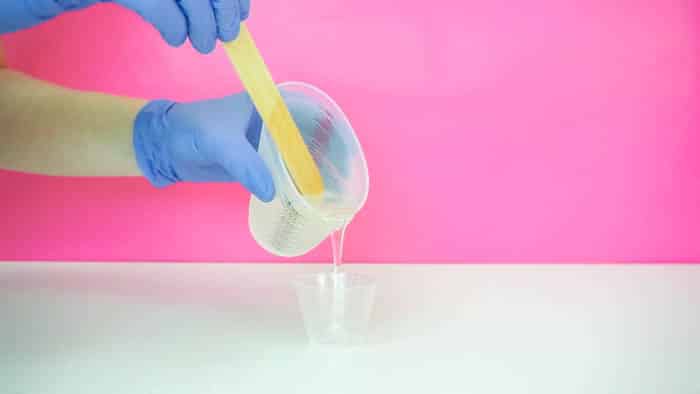
Can you wash resin down the sink?
NO, do not wash resin down the sink. Always wipe out your cups when still wet OR remove the majority when cured and put it straight in the trash. Unless you want an expensive plumbing bill!
What is the best way to clean resin?
The easiest way to sum up cleaning resin cups: wipe out wet resin from plastic cups and let the resin harden in silicon and then remove it. Below we go more in-depth on how to clean resin cups.
What products can I use to clean resin?
Some items you’ll want to keep on hand for cleaning up resin projects: acetone, vinegar and baking soda, tape, lacquer thinner, citrus-based cleaners, rubbing alcohol, baby wipes, and paper towels.
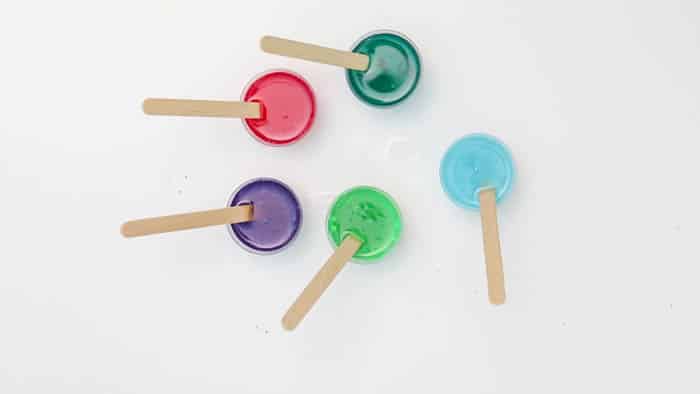
Overall, cleaning resin cups is a simple process that can be done with a few basic supplies. With a little bit of time and effort, you’ll be able to enjoy beautiful pieces without worrying about the additional cost or time it takes to clean resin cups.
Remember to always use protective gloves, be mindful of your work area, and keep in mind that some types of resin can be more stubborn than others. With these easy steps, you’ll be ready for your next resin project in no time!


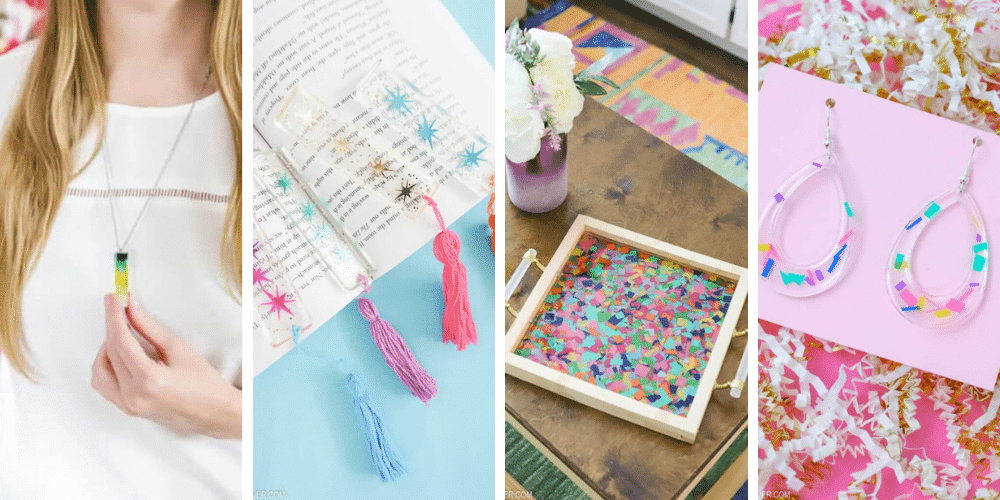

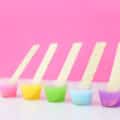
Scribd says
Thank you for this helpful guide, Amber! I’ve been struggling with cleaning my resin cups after a few mishaps, and your tips on using the gentle scrub and avoiding harsh chemicals are super useful. Can’t wait to try these methods out!
A1 says
Thanks for the detailed guide, Amber! Cleaning resin cups always felt daunting, but your tips on using vinegar and baking soda really make it seem manageable. I can’t wait to try it out!